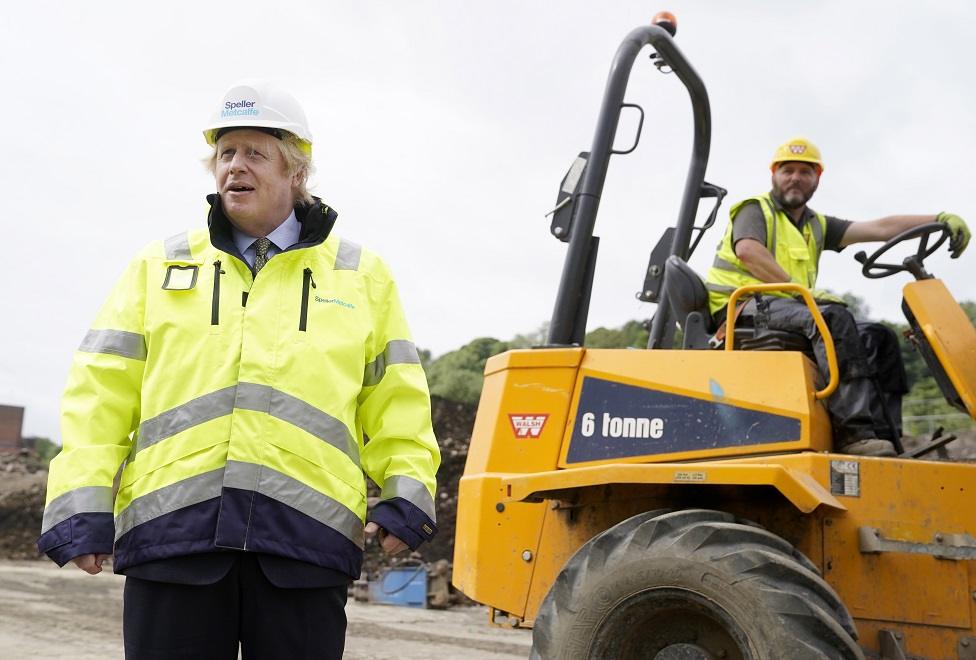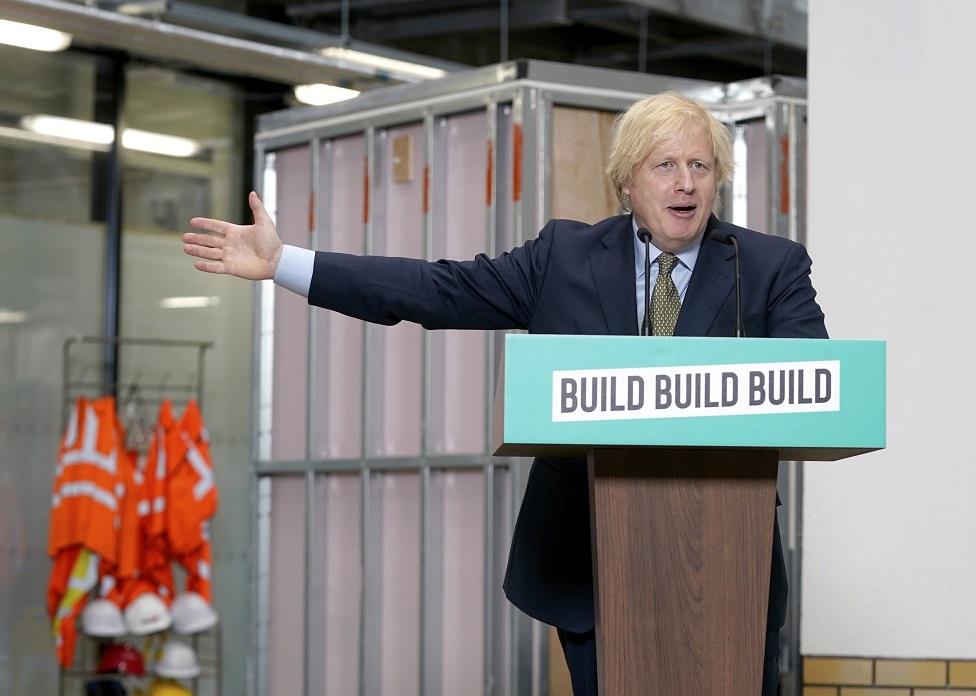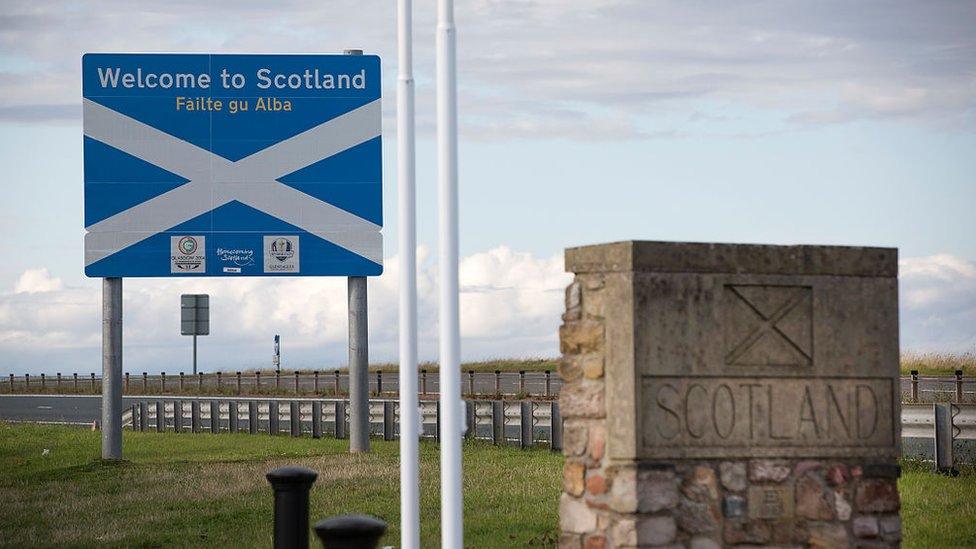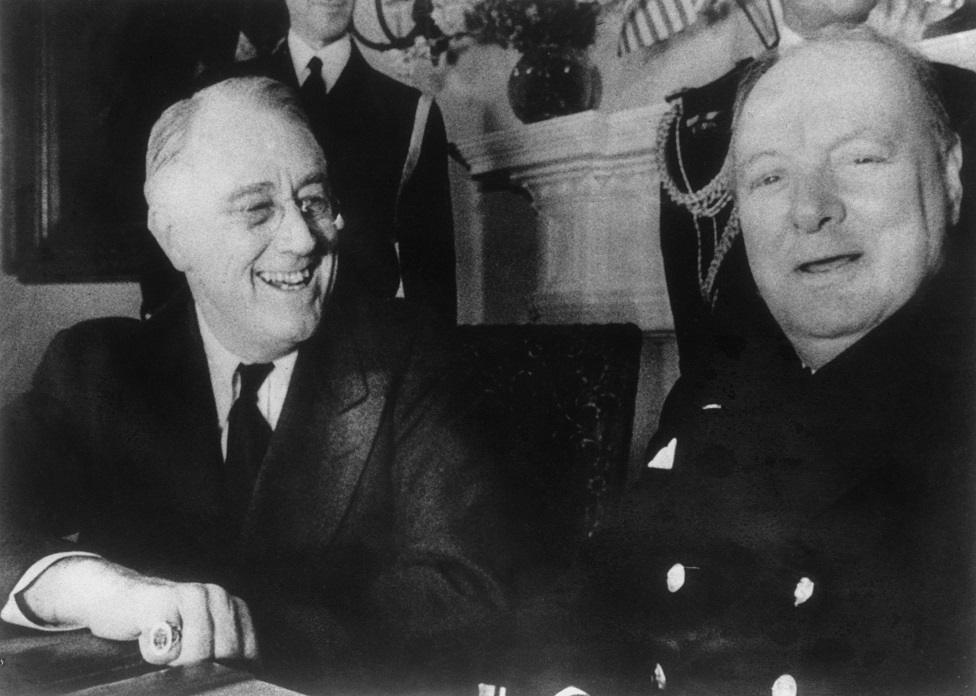Coronavirus: 'Boris the builder' outlines economic recovery plan
- Published

The route map to recovery is now being pored over, with government being offered advice, and Boris Johnson setting out his own vision and direction of travel
They have in common a green thread, at least, and a much bigger role for government than we have seen in recent years, which for the prime minister is both an economic and political project
His reach beyond England is limited, and he's leaving his Chancellor to deal with the detail of borrowing and spending limits - which will strongly influence decisions at Holyrood.
"Build Back Better": the slogan being used by many people, with varied visions of what "better" looks like.
Yes, while lockdown has moved to re-opening the economy and social lives, it's clear that attention is turning to what follows.
How to deal with the huge hit the economy is taking? In the longer term, how to re-shape society and modernise the economy?
Last week, the group led by Benny Higgins and commissioned by the Scottish government to set a course for economic recovery, gave a big vision, featuring education and reduced inequality. Mr Higgins, a former banker, offered a ballpark figure of £6 billion of intervention by government, based pro rata on the example of Germany.
On that cue, the Scottish government did something unusual this week, setting out a plan for the UK - an £80 billion package including tax cuts.
Following the Higgins plan, but more ambitious for government borrowing to support and invest in private firms, were Andrew Wilson and Alan McFarlane - an economist and an asset manager. They set out plans for agencies which could handle these stakes professionally.
The green theme ran through programmes set out on Tuesday by Greenpeace, with a £100 billion price tag. The Scottish Council Development and Industry, a broad-based economic club, had a plan which was also strongly verdant in its colouring.
Four nations
Then, enter Boris Johnson. His speeches are big on build-up, and on rhetorical flourishes.

But they don't always achieve what was intended. His "Stay alert" Sunday evening address, which started the process of easing lockdown, left many viewers bewildered. The speech in Dudley, with "build build build" on his lectern, was similarly eccentric.
It drew on shared endeavour through the hard times of lockdown, to muster enthusiasm for the onward march to sunnier uplands. There, Britain will be the best place in the world to live, and a superpower of science and innovation.
Splattered through the rhetoric were spending commitments, some announced already, others brought forward. But detail? Well, wait for the Chancellor, Rishi Sunak, next week setting out the "first phase plan".
To know how much is really new money, look at the consequential spending that goes to Scotland, Wales and Northern Ireland through the Barnett Formula. They rarely get as much as the spin - in today's case, £5 billion - might suggest they should be. Today, there were no such figures.
That "four-nation" dimension was one of the most telling parts of the speech. This was a British prime minister with a British vision, but with English spending plans. The closest the other parts of the UK got to detail was in a promise to improve cross-border links.
Corbyn caricature
In Scotland, that means the A1 south of Berwick will be dualled - no doubt welcome for hauliers, easing routes to and from ports and the east of England.

There are plans to dual the A1, which links Scotland and England in the east
What matters more beyond English borders is that Boris Johnson was making cleaner still his break with the austerity years, in which Conservative chancellors bore down on the deficit and aimed to reduce debt.
Today's Tory leader seems intent on spending like his caricature of Jeremy Corbyn. A £300 billion, 15% deficit this year doesn't seem to bother the PM. There will be more borrowing and more spending. He's a believer in big government, which "puts its arms around people", while building bigger, greener and faster.
It's cheaper to invest and borrow now, he said, when costs are low and returns are greatest, to drive growth and to fuel "animal spirits". That's a reference to the human instinct to engage in the economy - a term used by John Maynard Keynes, the economist most closely associated with government borrowing to counteract downturns.
Austerity no more
There are a few questions about that. One: how can you spend money as rapidly as the downturn demands it, when infrastructure takes frustratingly long to get started? "Shovel ready" projects are harder to find than in the 1930s economy.
Much of the prime minster's speech argued for tearing up English planning constraints, bulldozing his way through requirements, for instance, for "newt-counting" environmental audits. But even reforming planning laws takes time. "Project Speed" is the code name for something that risks being more hasty than speedy.
Two: if a stimulus is ahead, how best and how fairly to cut tax? The easy cut is in VAT, but in this downturn, that may be the wrong lever. People are less likely to respond to lower prices if they remain cautious about spending at all, and keen instead to save. The bigger impact could be achieved through welfare support and lowering the cost of employing people.
Three: will the Conservative Party follow this lead? Keynes is not their political turf. In general, the party faithful don't like big government, or the taxes to fund it.
Four: if Tories are abandoning fiscal conservatism and austerity, where will their opponents, including the SNP and Labour, find a new tune?
Three more terms

Franklin D Roosevelt pictured with Winston Churchill at the White House in 1941
JM Keynes is often associated with the economic policy of Franklin Delano Roosvelt, US president from 1933 to 1945. He responded to the Great Depression by building big and employing millions of people on public works that laid the foundations for the country's post-1945 economic prosperity.
It levelled up in desperately poor parts of Appalachia, with roads and giant hydro schemes. The Tennessee Valley Authority was the model that inspired the Highlands and Islands Development Board in 1966.
Boris Johnson talks of levelling up parts of the north of England that felt left behind, backed Brexit and voted in Tory MPs at the December election.
This is an economic project for the prime minister. It is also, of course, a political one.
President Roosevelt won four elections as president. He was so successful that the rule book was changed, and a two term limit put on successors. Such a political and economic legacy would suit Boris Johnson just fine.
